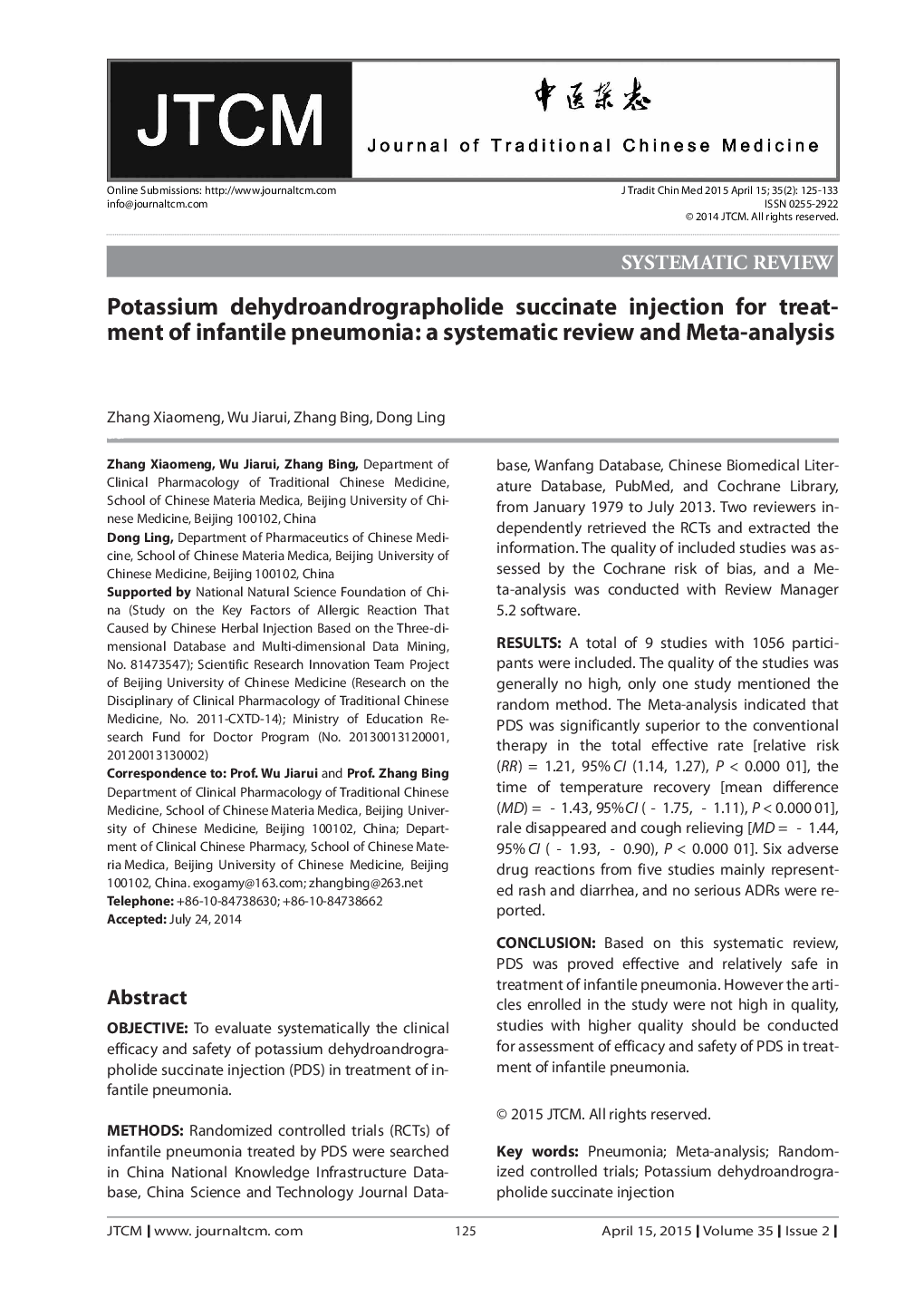| Article ID | Journal | Published Year | Pages | File Type |
|---|---|---|---|---|
| 4201293 | Journal of Traditional Chinese Medicine | 2015 | 9 Pages |
ObjectiveTo evaluate systematically the clinical efficacy and safety of potassium dehydroandrographolide succinate injection (PDS) in treatment of infantile pneumonia.MethodsRandomized controlled trials (RCTs) of infantile pneumonia treated by PDS were searched in China National Knowledge Infrastructure Database, China Science and Technology Journal Database, Wanfang Database, Chinese Biomedical Literature Database, PubMed, and Cochrane Library, from January 1979 to July 2013. Two reviewers independently retrieved the RCTs and extracted the information. The quality of included studies was assessed by the Cochrane risk of bias, and a Meta-analysis was conducted with Review Manager 5.2 software.ResultsA total of 9 studies with 1056 participants were included. The quality of the studies was generally no high, only one study mentioned the random method. The Meta-analysis indicated that PDS was significantly superior to the conventional therapy in the total effective rate [relative risk (RR) = 1.21, 95% CI (1.14, 1.27), P < 0.000 01], the time of temperature recovery [mean difference (MD) = − 1.43, 95%CI (− 1.75, − 1.11), P < 0.000 01], rale disappeared and cough relieving [MD = − 1.44, 95% CI (− 1.93, − 0.90), P < 0.000 01]. Six adverse drug reactions from five studies mainly represented rash and diarrhea, and no serious ADRs were reported.ConclusionBased on this systematic review, PDS was proved effective and relatively safe in treatment of infantile pneumonia. However the articles enrolled in the study were not high in quality, studies with higher quality should be conducted for assessment of efficacy and safety of PDS in treatment of infantile pneumonia.
